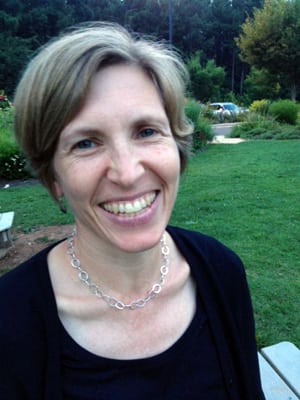Conservation Ecology and Sustainable Development alumni have gone on to careers in academia, NGOs, government agencies, and the private sector. In honor of the CESD program’s twentieth anniversary, we checked in with some of them to find out what they’re up to now and how the program has influenced them.
Q: What is your current job title and what do you do?
I am Director of Science and Policy, River Network. River Network is a national organization that supports and builds capacity of watershed and other groups working to protect and restore rivers throughout the U.S. As Director of Science and Policy, I am responsible for identifying and implementing our strategic conservation priorities, seeking and expanding opportunities to unite groups behind those priorities, and fundraising and staff management.
Q: What has been your career path, from leaving UGA to where you are now?
Upon leaving UGA I worked for the Upper Chattahoochee Riverkeeper (now Chattahoochee Riverkeeper) as their Director of Headwaters Conservation. After five years, I returned to law school at the University of Maryland, where I had the opportunity to work for NRDC and American Rivers during the summers. I worked as a policy analyst for the legal think tank, Center for Progressive Reform, for a year before joining the staff at American Rivers. I worked for American Rivers, on clean water and water supply policy and advocacy issues, from the DC and NC offices for eight years. I then worked for a regional land trust, Triangle Land Conservancy, for a year plus before returning to the river community with my current position with River Network.
Q: How did the CESD program impact that journey?
CESD opened a whole world for me – I came to the program with an interdisciplinary BA in Environmental Studies without deep classwork in science. But given my interests in water resources, getting to come to UGA and take classes with leading aquatic scientists, who were also excellent teachers, like Judy Meyer, Bruce Wallace, Todd Rasmussen, Marshall Darley, Cathy Pringle and Karen Porter was a true gift. Additionally, I learned much from the research required for my thesis and from my cohort colleagues in the CESD program. Another way in which CESD impacted my journey was the support for taking classes outside of the Institute, and the flexibility on timing – I took a quarter off to work for the Georgia Environmental Council at the Georgia Legislature.
Q: What are some favorite CESD or Odum School (or Institute of Ecology) moments?
Some of my favorite moments include: the seminars at the Institute by resident and visiting students and faculty, limnology and aquatic entomology labs, discussions with fellow CESDers, and dinners at the Mean Bean. Meeting many close friends, including my husband and my daughter’s godmother, of course among the highlights!
Q: What is the most pressing conservation need you or your organization face and how might we best prepare our CESD students to meet that challenge?
One of the current conservation challenges is crafting and retaining policies that are protective of the environment given that good science is necessary, but not sufficient. Not only is science picked apart in a way that is contrary to the scientific process, but there’s a high burden on communities advocating for stronger protections to have the science as well as the economics, the business case, a good communications strategy, etc.. Preparing to work with a diverse range of groups to be able to create coalitions, as well as some familiarity with economics and finance is going to be helpful.
Q: Do you have any general advice you have for CESD students? Any advice regarding job opportunities specifically?
I’ve worked with, for and have hired such a range of amazing people over the years all with different backgrounds and experiences so I don’t believe that there’s any one path or boxes to check on a resume. The things that stand out to me when reviewing candidates is a clear, creative and non-cookie cutter cover letter and a sense of dedication and/or passion. I also like to see something non-professional about a candidate on a resume (I once got hired for having been a youth soccer coach…). For anyone looking to enter the nonprofit sector, experience in communications and/or fundraising is always a bonus. Finally, organizations are as much about the people as the mission or job description, so pick a job at a place where the culture is a good fit for you.

